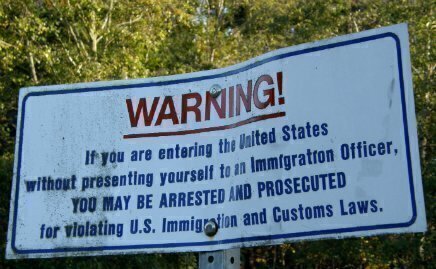The political and human rights controversy over the Trump Administration policy of family separation as a form of immigration control is also now moving into a quieter venue – into court, as a constitutional fight. Two new lawsuits have just been filed, seeking court orders to promptly reunite thousands of children with their parents.
 The cases, opened in federal court in Seattle Monday and Tuesday, are being pursued by 17 states and the local government of Washington, D.C., and, separately, by three Latin America women asylum-seekers whose children were taken from them.
The cases, opened in federal court in Seattle Monday and Tuesday, are being pursued by 17 states and the local government of Washington, D.C., and, separately, by three Latin America women asylum-seekers whose children were taken from them.
The coalition of state and local governments mounted the most sweeping constitutional claims, arguing that the intentional separation of families treats Latin Americans in an arbitrary way that violates their due process rights, and that it discriminates on the basis of national origin or ethnic identity. “The policy is unconstitutional because it disparately impacts immigrants from Latin America arriving at the Southwestern border and is motivated by animus and a desire to harm this particular group,” that lawsuit contended.
It also argued that the policy violates federal laws, including those that mandate how to handle asylum claims by people who newly enter the country. The three women also raised a due process claim and one under asylum law, and they seek to represent all immigrant parents who have been taken into custody in Washington State and then had their children taken away.
These are the first constitutional cases since the President and his aides claimed they were ending the family-separation policy, and the lawyers involved are claiming that there are as of now no legal guarantees that the policy will not be renewed. Thus, aside from asking for rulings that the policy is invalid, the lawsuits demand that the Administration be explicitly forbidden to reinstate the separation approach.
In addition, the lawsuits seek immediate reunification of separated families, at least until the new legal challenges can be decided in the courts. The Administration, the challengers claimed, has no plan on reunification.
No parent should be deported without their children, the filing argued, unless it is completely clear that the parents consent to such a move and do so only after consulting a lawyer.
The cases have been assigned tentatively to two different judges in Seattle but, because the claims are over-lapping, they may be combined and put before a single judge.
The massive, 128-page lawsuit by the state and local governments recounts all of the details of the Administration’s shifting policies on the handling of people who arrive at U.S. borders seeking asylum as they escape from what they assert are threats of persecution or violence in their home country.
The Latin American woman complained that they had not yet had a hearing, as federal law requires, on whether they have a reliable claim of persecution in their home countries.
The heart of the two lawsuits, as phrased by the state and local case, is that the government is using a policy of “traumatized children and families” to send a signal across the border into Central America not to come to the U.S. with their children. Although the policy was publicly announced in April by Attorney General Jeff Sessions, the challengers argued that it has been planned mostly in secret since soon after President Trump entered office almost 18 months ago.
The state and local governments’ case contended that the individual states and the city government have had to mobilize resources to take care of the lengthening list of children who have been separated from their parents, and transferred to care centers across the country.
Officials and staff aides in those states are finding that separate children are suffering “immediate, acute trauma as well as foreseeable long-term damage.” Parents, too, are suffering trauma and lingering side-effects of emotional distress, the lawyers wrote in the state and local case.
The only reason that a child can legally be separated from parents, according to the legal claims, is to protect that child’s safety. If a parent is fit and poses no risk to the child, family unity must be maintained, the state and local document said.
Legendary journalist Lyle Denniston has written for us as a contributor since June 2011 and has covered the Supreme Court since 1958. His work also appears on lyldenlawnews.com.







